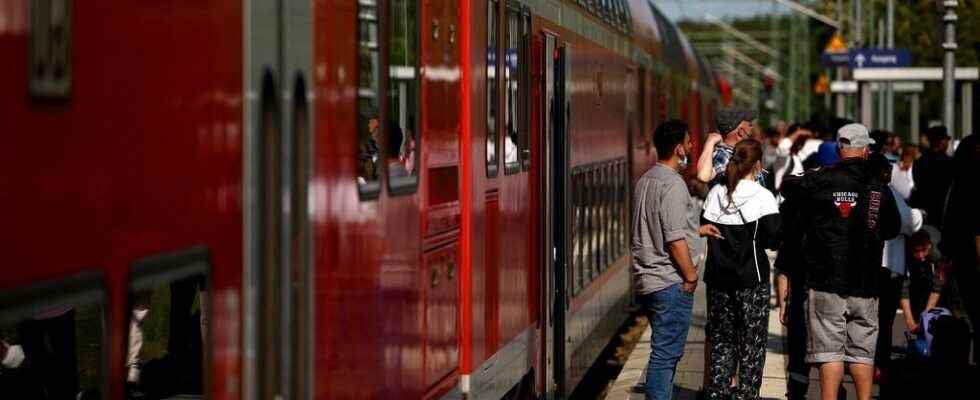A small revolution ends this Wednesday, August 31 in German transport. Since June 1, users have been able, for nine euros per month, to travel as they please across the country using regional trains and public transport. The offer was a resounding success, but without solving the fundamental problems. Already, discussions are going well to find a long-term solution.
RFI: why was this nine-euro-per-month ticket launched and what did it allow ?
Pascal Thibault: In the spring, the German government adopted a first package of measures to react to the significant increase in prices, in particular those ofenergy. Various measures have been decided such as a reduction in taxes for three months on fuel, an increase in certain social benefits and, after a long night of negotiations, the introduction of a monthly train ticket at nine euros. A request from the Greens to make public transport more attractive and encourage motorists to use their cars less.
The ticket allowed users unlimited use of regional trains throughout Germany, as well as public transport – buses, metros, trams – in their city and elsewhere. City dwellers who benefited from a season ticket for public transport saw the price of their monthly ticket reduced to nine euros and benefited from the same advantages. The deficit created for transport companies was compensated by the Federal State at a cost of 2.5 billion euros.
What conclusions can we draw after these three months of the nine-euro note ?
This offer was a huge success with 52 million nine-euro tickets sold in three months, to which must be added some 10 million holders of subscriptions for urban transport. This offer sparked a Societal phenomenon and put transport issues back at the center of the debates. The nine-euro note has enabled many people to make excursions in their region or across the country. It has enabled poor people to travel and see relatives or friends. The offer was of unprecedented simplicity, especially in a country where, in the large urban conurbations, different companies exist with a multitude of prices that are difficult to understand and even less practical. One out of ten trips made with a nine-euro note would have taken place behind the wheel of a car according to a balance sheet, i.e. a CO2 saving which would be similar to the consequences of a reduction in speed on German motorways for a year. .
But this nine-euro ticket offer did not solve certain difficulties: the problems of Deutsche Bahn – the German public railway company – have not been solved, the countryside remains the poor relation in terms of public transport, large investments are needed for overused infrastructure and delays have increased significantly. Deutsche Bahn staff have been put to the test, especially on busy tourist routes.
► To read also: Rail summer in Germany: future social phenomenon or false good idea?
And will the nine-euro note remain a trial balloon, or could this experience leave traces over time? ?
She will surely resurface. Many proposals are issued almost daily to extend the experience with monthly prices that would be 29, 49, 6nine euros per month. The regions are for it but want the state to put its hand in the wallet. The finance minister is resisting. An alternative could be put in place early next year. But on the ground, some do not want to wait. The city of Berlin is considering a transitional solution in the fourth quarter. In the meantime, from Thursday 1 September, the old rates will be valid again.
